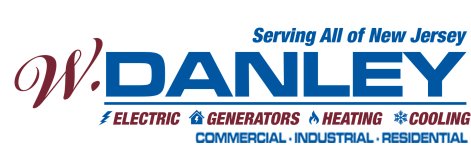How Does A Commercial Generator Work?
While power outages are a challenge for homeowners across New Jersey, they are more than just an inconvenience for businesses and industries. Not having power can lead to loss of production, potential damage to equipment, and challenges with meeting orders and retaining customers.
To overcome these issues, businesses of all types across the state install commercial generator systems. These operate on the same technology as automatic backup generators for residences, but they offer a much higher output to be able to keep everything from hospitals to shopping malls and processing plants to shipping hubs fully functional throughout a power outage.
Operation of the Generator
Build to withstand the environment, a commercial generator is fully enclosed and is wired directly into the building’s electrical grid through a subpanel system. In addition, these generators have dedicated fuel tanks, as they are most commonly diesel or natural gas. This ensures the generator starts immediately when the power goes out and continues to run as long as required. Typically, natural gas generators have their own dedicated supply line.
When the sensor in the electrical panel detects the loss of power, it turns on the commercial generator. This allows the engine of the generator to produce power through the alternator and then into the electrical panel. Typically, the drop in power noticed in the building and through the operating systems is just a fraction of a second, resulting in continuous operation.
As with residential types of backup generators, correct sizing is critical for the large industrial generators. If you are considering adding a generator to your business, call W. Danley Electrical Contracting at 732. 432.0164, we assist you in getting the right size and type for your power needs.


